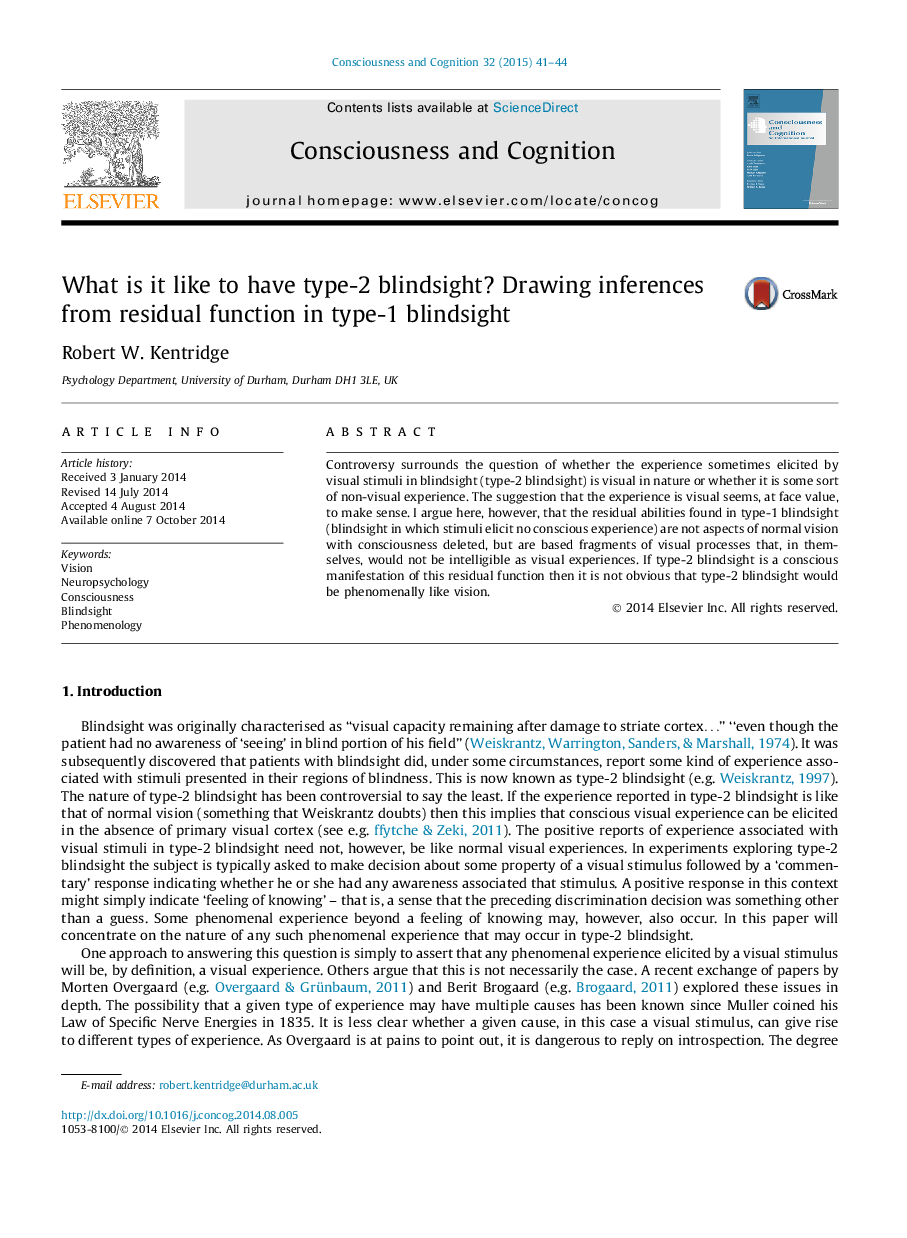| Article ID | Journal | Published Year | Pages | File Type |
|---|---|---|---|---|
| 7289497 | Consciousness and Cognition | 2015 | 4 Pages |
Abstract
Controversy surrounds the question of whether the experience sometimes elicited by visual stimuli in blindsight (type-2 blindsight) is visual in nature or whether it is some sort of non-visual experience. The suggestion that the experience is visual seems, at face value, to make sense. I argue here, however, that the residual abilities found in type-1 blindsight (blindsight in which stimuli elicit no conscious experience) are not aspects of normal vision with consciousness deleted, but are based fragments of visual processes that, in themselves, would not be intelligible as visual experiences. If type-2 blindsight is a conscious manifestation of this residual function then it is not obvious that type-2 blindsight would be phenomenally like vision.
Related Topics
Life Sciences
Neuroscience
Cognitive Neuroscience
Authors
Robert W. Kentridge,
